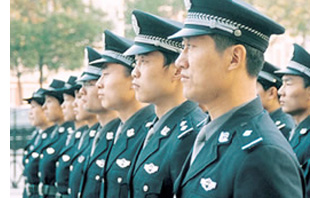China commences national Olympics security clampdowns
Foreign chief representatives and staff may be asked to sign personal guarantees
 April 21 – Beijing has instigated massive security clampdowns across China ahead of the Olympics, including closing some of its borders.
April 21 – Beijing has instigated massive security clampdowns across China ahead of the Olympics, including closing some of its borders.
This follows on from recent difficulties in obtaining visas to travel to Mainland China from Hong Kong, as the public security network begins a six month policy of complete or partial closure of its borders.
Many of China’s northern and western borders with Russia, Kazakhstan, Pakistan and Mongolia have been effectively sealed on the Chinese side, and trips between these locations are now becoming increasingly difficult to “non-essential” travelers, thus ruling out traditional summer adventure holidays touring of the Southern Silk Road and Karakoram Highway.
Bars and restaurants in Urumqi have had licenses for certain outdoor areas rescinded. Trips to Lhasa are being heavily monitored, and restaurants and bars in the city are being asked to seal certain access points – rooftop bars, open air spaces and so on – for “safety.” Roads may not be open at times to locations north of Lijiang, traveling towards Tibet through Zhongdian and Deqin, again a popular summer tourist route and destination. Parts of Sichuan, Gansu and Qinghai are also expected to be affected with travel being difficult to procure in all directions, while crossings with Burma appear also to be suspended, or difficult to access.
We also anticipate businesses with premises overlooking key strategic routes in Beijing, and in other cities holding events to have their windows sealed and foreign or Chinese chief representatives and staff to have to sign off “personal guarantees” that the premises will not be used for “inappropriate” or “terrorist” activities and to sign a personal liability in the event of any problem. Such tactics are not new, with offices backing onto hotels and key roads having doors and windows locked and secured and staff required to sign off personal assurances of good behavior and personal criminal liability in the event of any trouble. They have been used before – with the Shanghai Cooperation Organization meeting in Shanghai in 2006, and with offices overlooking roads or hotels in Beijing whenever official delegates are visiting the country.
It is difficult to know how serious such a document could be, but it would certainly be used to warrant arrests and detentions for such personnel during any investigation into the “inappropriate activities” that took place. China can detain people without questioning for up to 90 days without charge and can usually find ways to extend this through the courts, especially when national security is an issue.
While the Olympics may be fun, we do expect a toughening of movements in and out of the country and requests that foreign and Chinese staff in key locations take on personal criminal liabilities should any untoward events occur. Plans to take adventure trips to China’s border areas during this summer may also be better off postponed, with reports we are hearing of a date of October 10, following the national holiday, before things return to normal.
- Previous Article Improving infrastructure keeps Yangtze River Delta vibrant
- Next Article Starbucks plans China expansion, 80 new stores to open in 2008









